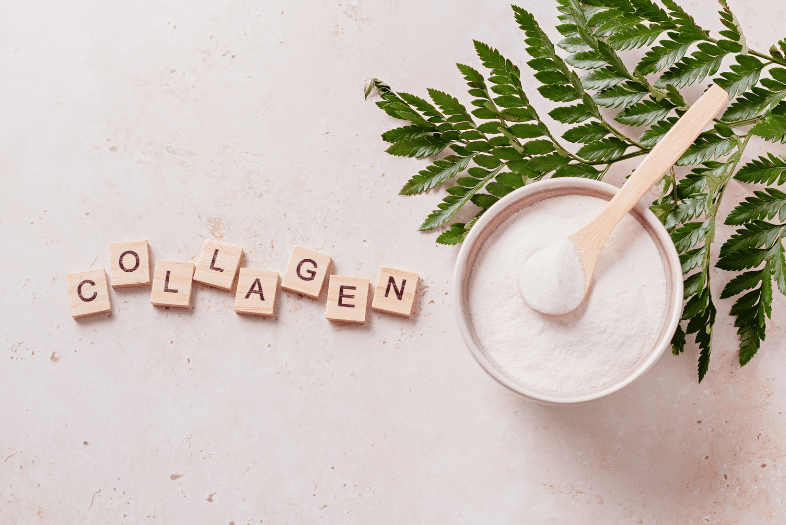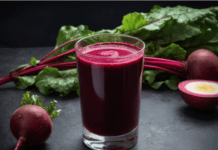How Can I Benefit From Collagen?
Here we will discuss how you can Benefit From Collagen. There are many benefits of collagen supplements. While most of the benefits of collagen supplements are focused on the skin, they can also improve other aspects of your body.
These benefits include improved skin elasticity, smoothed wrinkles, and strengthened nails.
Taking collagen can improve these areas and can even help you lose weight. You can add collagen powder to your food, drink soup, or make your own.
The American Society of Plastic Surgeons predicts Americans spend $11 billion annually on cosmetic operations, including facelifts and Botox injections.
However, these do not affect your body’s ability to produce collagen, which supports your skin and health.
Why should you care about collagen?
The most prevailing protein in the human body, collagen, is frequently referred to as the “glue” that keeps the body together.
Major structural components of the skin, bone, joints (tendons and ligaments), and blood vessels are collagen fibers (arteries and veins).
Collagen and “collagen booster” supplements have been demonstrated to, among other things, strengthen hair, enhance nail health, tone, and texture of the skin, and prevent wrinkles.
It is believed that supplements operate by encouraging the body to create more collagen on its own.
As an illustration, vitamin C is one of the best collagen boosters because it is essential to developing collagen and reduces collagen production if you are vitamin C deficient.
Two more nutrients that encourage the body to produce more of its collagen are silicon and hyaluronic acid (HA).
Here are some pointers for maximizing the effectiveness of collagen boosters and supplements.
1. Healthy Skin Requires Collagen
Elastin supports the skin to bounce back to its initial shape after being pulled or bent, thanks to the flexible strength provided by dermal collagen.
Healthy collagen production is essential for smooth, wrinkle-free skin. Skin that lacks collagen “caves in” and develops wrinkles.
On the other hand, a lot of collagen forces the skin “up and out,” resulting in skin that looks younger.
2. Better Hair Health
Follicles, tube-like organs that emerge from the skin’s dermis, are where hair grows. The cells producing new keratin are in the hair bulb at the bottom of the follicle.
A section of capillary-rich, collagen-rich dermal tissue extends into the bulb’s base, feeding the cells nourishing and promoting the hair’s health.
Therefore, even though the hair is formed of keratin, the hair’s health greatly depends on having enough collagen.
Additionally, increased blood flow to the hair due to increased collagen in the dermal tissue ensures that the hair follicle receives ample growth-promoting nutrients.
3. Durable Nails
There are various conditions that can lead to brittle nails, but occasionally people develop brittle nails just because the nail matrix needs more collagen.
The cells that eventually form the nail plate are produced by the nail matrix. The nail plate’s size, length, and thickness are determined by the matrix’s dimensions.
Greater blood flow to the nail matrix is caused by increased collagen in the dermis, ensuring a steady supply of nutrients ideal for nail growth.
In one study, women who took BioSil, a patented complex containing a bioavailable form of silicon, experienced a considerable reduction in the brittleness of their nails and hair.
In contrast, women who took a placebo showed no significant improvement.
Additional Advice On Benefits From Collagen
Here is what some of the specialists we spoke to about collagen and collagen boosters had to say:
- Most collagen supplement formulations are essentially the same, with a few minor differences in the amino acid composition.
- Types 1, 2, and 3 of supplements are the most often used. Proprietary collagen, on the other hand, differs because it includes a patented mix of nutrients.
- For instance, BioCell Collagen combines chondroitin sulfate, hydrolyzed type 2 collagen, and hyaluronic acid.
- Use fully hydrolyzed collagen, not partially hydrolyzed, for the best absorption.
- Collagen that has not been hydrolyzed can still be helpful, but it seems to function differently from previous versions. Clinical studies have demonstrated that UC-II, a type of non-hydrolyzed collagen, enhances joint health and mobility.
- It’s frequently advised to take collagen on an empty stomach first in the morning.
- However, according to researchers, collagen is just as effective when consumed with meals and encouraging clinical trials back this up.
- Collagen has no known adverse effects and can be safely used with other foods, medications, and other supplements.
One warning: People who must follow a low-protein diet due to a medical condition (such as chronic kidney disease) may wish to stay away from collagen supplements or at the very least consult with their doctors before doing so.
- Take vitamins C, chondroitin sulfate, hyaluronic acid, biotin, and silicon to help your body make collagen (e.g., BioSil).
F.A.Q On Collagen
What Can Collagen Do for My Skin?
Collagen is a protein that provides skin structure and a velvety, plumped-up appearance.
Our bodies produce fewer and less as we age. We begin losing roughly 1% of our collagen per year in our twenties, and women lose about 30% in the first 5 years after menopause, creating wrinkles and sags.
Collagen replenishment has been shown in studies to minimize crow’s feet, fine lines, and wrinkles, increase hydration, make skin more elastic, give it a smoother, more youthful appearance, and reduce cellulite.
Can Collagen Help My Hair and Nails?
Additionally, collagen is a component of both hair and nails. An animal study revealed that thinning hair is caused by lower collagen levels around the hair follicles under the skin.
In nails, falling collagen levels can result in brittle, rough nails that are more prone to peeling and breaking.
Another study discovered that most participants who took bioactive collagen peptides daily for 24 weeks saw less brittleness and peeling of the nails.
Collagen also resulted in a 12 percent increase in nail growth and a 42 percent decrease in broken nails.
Can I Get Collagen From Food?
In theory, sure, but today’s diets are deficient. Collagen is abundant in animal parts we do not often consume: tendons, ligaments, skin, feet, bones, and marrow.
Bone broth absorbs collagen and other nutrients by boiling these pieces for hours.
Natural bone broths made in the conventional, slow-cooked fashion and concentrated bone broth in powdered supplements are food-based collagen sources.
What Types of Collagen Supplements Are There?
The skins or cartilage of cows, pigs, poultry, or fish, as well as concentrated bone broth, can be used to make collagen supplements.
In addition to tablets, collagen is also offered in concentrated liquids, powders, and as a single ingredient or in combinations with other nutrients for advantages particular to the skin, hair, nails, bones, and joints.
Additionally, it is included in creamers, energy bars, teas, and other meals and beverages.
How Should I Use Collagen Supplements?
One of the most versatile vitamins is collagen. It is available in pill or powder form, combined into beverages, sprinkled on foods, or used in nearly any recipe for cold or hot dishes—even baking.
Collagen, a component of connective tissue, promotes joint health. BioCell Collagen has been shown to lessen osteoarthritis pain, protect healthy people’s joints during activity, and improve exercise recovery.
Collagen can be supplemented in a variety of ways. Here are some product examples:
FOOD-BASED COLLAGEN: Vital Proteins, Unflavored Collagen Peptides
LIQUID COLLAGEN: Applied Nutrition Liquid Collagen Skin
COLLAGEN BOOSTER–VITAMIN C: FoodScience of Vermont Liposomal C
COLLAGEN BOOSTER–SILICON: Natural Factors BioSil
COLLAGEN CHEWING GUMS: NeoCell Beauty Bursts (Super Fruit Punch)
COLLAGEN BOOSTER WITH MULTIPLE NUTRIENTS: Hush & Hush SkinCapsule HYDRATE
COLLAGEN CAPSULES: Youtheory Collagen Advanced Formula








